Raul Barral Tamayo
Shared posts
CC.OO. y UGT reconocen por escrito que se pasan por el forro el salario mínimo.
Ejemplos para entender la disonancia cognitiva
Leon Festinger sostuvo que los seres humanos tenemos un impulso interno que nos motiva a conservar la congruencia entre nuestras acciones y creencias. Esto es lo que conocemos como disonancia cognitiva, de la que hay miles de ejemplos.
La teoría del psicólogo nació de los estudios que realizó con una secta que creía que el mundo se acabaría por una inundación. Partiendo de sus investigaciones, él refirió que existe una inclinación básica que nos alienta a evitar la falta de armonía en nuestro sistema cognitivo.
En este artículo, abordaremos el tema. Además, aprenderemos por qué actuamos de manera contradictoria y qué hacemos para reducir el malestar que esto nos genera.
¿Qué es la disonancia cognitiva?
De acuerdo con Leon Festinger, esta teoría es la inconsistencia entre cogniciones (conocimientos, opiniones o creencias), acciones, valores o actitudes. Debido a que es un estado incómodo a nivel psicológico, las personas intentan reducirlo a través de diversos medios.
Aunque molesta sentirla, la disonancia cognitiva no es negativa. Se trata de una alarma que nos activa para restaurar la consonancia. Gracias a ella, nos esforzamos por conservar la coherencia entre lo que hacemos, decimos y pensamos. Veamos algunas señales de dicho estado, según Cleveland Clinic:
- Dudas de las elecciones realizadas.
- Sentimientos de culpa o vergüenza.
- Dificultades para justificar las acciones.
- Malestar subjetivo por la falta de congruencia que existe entre valores y acciones.
Podemos sentirla cuando tomamos una decisión que no es fiel a nuestros valores. También, al recibir información nueva que se contrapone a lo que hacemos o creemos. En general, la vivimos ante cualquier tipo contradicción interna.
Te podría interesar: Disonancia cognitiva en dependencia emocional
Ejemplos de disonancia cognitiva
En los siguientes ejemplos de disonancia cognitiva veremos, en esencia, la falta de armonía entre cogniciones y acciones. La contradicción es la clave para que la teoría pueda darse. Tan solo resolviendo la incongruencia es posible reducir el malestar que esta genera.
1. Fumar o no fumar
Juan sabe que el tabaco puede ocasionarle problemas respiratorios muy graves. Él desea dejar su vicio porque conoce los riesgos de perpetuarlo, pero fuma todos los días. Esta situación lo angustia mucho, debido a que no logra ser coherente con lo que piensa.
En este caso, vemos que la respuesta de Juan (seguir fumando) no es consecuente con su conocimiento (los riesgos de fumar).
2. Hacer trampa en los exámenes
Para Martha, la honestidad y el éxito meritorio son valores fundamentales en su vida. Sin embargo, en un examen final de la universidad hizo trampa al ver sus apuntes.
Esto le ocasionó un fuerte malestar porque no fue coherente con sus ideales. No logró aliviar su malestar, aunque intentó justificar su acto diciéndose que, si no pasaba el examen, reprobaría y perdería su beca.
3. Salir con amigos
Camilo decide salir con su amigo Carlos, aun cuando no quería. A pesar de su indisposición, decide ir pues Carlos le insistió mucho. Como consecuencia, sucede que Camilo pasó toda la noche inconforme porque salió cuando él solo deseaba quedarse en la casa viendo una película. Este es uno de los ejemplos cotidianos más frecuentes de la disonancia cognitiva.
4. Educación sexual
En sus clases de sexualidad, Pedro recomienda a sus alumnos usar condón para reducir el contagio de enfermedades de transmisión sexual. Pero él no lo usa cuando mantiene relaciones íntimas. A Pedro esta contradicción le genera un poco de vergüenza, dado que «predica pero no aplica».
5. Tener una vida saludable
Entre sus metas de año nuevo, Oriana se propuso tener un estilo de vida sano. Ya han transcurrido 4 meses y ella aún mantiene hábitos poco saludables. Oriana desea cambiar, pero no hace nada diferente: no se ejercita, ni duerme lo suficiente, tampoco tiene una dieta nutritiva… Sus acciones no están sintonía con sus propósitos.
6. Ahorros económicos
Manuela gasta parte de su sueldo en cosas innecesarias, por más que le gustaría ahorrar ese dinero para realizar los proyectos que tiene a futuro. Sabe que necesita esa plata, pero no deja de comprar bienes y servicios inútiles. Esta situación la tiene desanimada y se siente culpable, ya que no es capaz de vivir de acuerdo con su plan.
7. Protección ambiental
Carmen está en contra de la contaminación ambiental. No obstante, no recicla en su casa. Si bien conoce la importancia de separar los residuos, no lo hace porque le da pereza. Esta falta de coherencia entre sus valores y sus actos le generan mucha incomodidad, sobre todo, cuando su hermano, en tono de burla, le hace ver sus acciones.
8. Estilo de crianza
En el hogar de Cristina y Pablo se aplica estilo de crianza respetuoso donde no se usan los gritos ni los castigos severos. Un día, Pablo le revela a su pareja que se siente culpable, porque cuando está estresado y su hijo de 8 años no le obedece, le grita fuerte. En este ejemplo, la conducta no es consecuente con los valores familiares.
9. Procrastinación
Últimamente, Julia se ha retrasado con la entrega de los proyectos para su trabajo. Para ella, la puntualidad y la responsabilidad son valores fundamentales. Por eso, se siente mal frente a estas conductas de procrastinación (ser impuntual e irresponsable) y su jefe le hizo algunos llamados de atención.
10. Afiliación política
Lucía experimenta incongruencia cognitiva porque el partido político al que está afiliada publicó un comunicado en favor del aborto y ella es provida. Aunque comparte con la organización otras ideas y propuestas, en este momento se siente mal por integrar un partido abortista.
11. Infidelidad y compromiso
Para Felipe, la fidelidad es el pilar en la relación amorosa que tiene con Sofía. Sin embargo, tuvo una aventura sexual con una compañera del trabajo. Su manera de proceder lo hace sentir culpable, porque no le fue fiel a su novia Sofía y, sobre todo, por no ser fiel a sus propios principios.
12. Igualdad de género
Ana es una apasionada defensora de la igualdad de género. Como regla de convivencia, siempre ha defendido que tanto hombres como mujeres realicen de manera equitativa los deberes del hogar.
No obstante, en su casa es ella quien realiza la mayoría de los quehaceres domésticos, ya que su novio, a quien ama mucho, se niega a asumir su parte de responsabilidad. Esta situación la tiene frustrada y molesta.
13. Evolución y creación
Aurora es una fiel devota del cristianismo y de la ciencia. En sus clases de biología, aprendió sobre la teoría de la evolución y el apoyo que esta recibe por parte de los científicos. En este momento, sus conocimientos religiosos sobre la creación de Dios y la evolución de las especies empiezan a generar conflicto interno en ella.
14. La desigualdad capitalista
Andrés es un político defensor del capitalismo, del libre mercado y la competencia. No obstante, ha notado la desigualdad que este sistema económico genera en las sociedades. La disputa entre su apoyo al capitalismo y la notable falta de igualdad lo ha sumido en una fuerte disonancia cognitiva.
¿Por qué actuamos en contradicción con nuestras propias creencias?
Una de las principales razones de ir en contra de lo que creemos es por el cumplimiento forzado, donde la presión social nos incita a hacer algo que realmente no deseamos. En este contexto, las expectativas externas juegan un papel central para crear la contradicción dentro de nosotros.
Actuamos en contradicción, también, porque tenemos que elegir. En ocasiones, escoger entre una o más posibilidades causa malestar debido a las ventajas que se pierden al descartar una opción y las desventajas que se ganan al quedarse con una.
De igual modo, tenemos conductas opuestas a nuestras creencias por falta de autoconocimiento. Es posible que desconocer nuestros principios y valores centrales nos lleve operar de forma contradictoria sin saberlo.
Asimismo, actuar a favor de la inconsistencia traería algunos beneficios (placeres) que superan los sentimientos desagradables de la disonancia cognitiva. Si las ventajas superan las desventajas, es más probable que actuemos de forma contradictoria.
¿Cómo intentamos reducir la disonancia cognitiva?
Para minimizar esta tensión la estrategia es cambiar la conducta incongruente. Al modificar el comportamiento, este se reemplaza por otro que sea coherente con las creencias, de modo que así se restablece la consonancia cognitiva.
Otra alternativa es desarrollar nuevas formas de pensar o sentir respecto a la acción. Construir creencias alternativas que estén en sintonía con lo que se hace, facilita la consonancia y reduce el malestar de la inconsistencia.
De igual modo, es factible optar por solo restarle importancia al conocimiento. Si la cognición no vale tanto, no habrá discordancia al comportarse de manera opuesta a eso irrelevante que se cree.
Integrar nuevos datos o información al sistema cognitivo se suma como técnica útil. Un nuevo conocimiento que subestime al anterior y que esté en sintonía con la conducta disonante nos proporciona un poco de congruencia.
Por último, también se puede apelar al cambio de contexto o situacional. Para atenuar la desarmonía cognitiva, evitamos las circunstancias que nos la generan, de ese modo no tenemos que cambiar de conducta ni de ideas. Es la típica evitación como mecanismo de defensa.
No te vayas sin leer: Actúo, luego justifico (disonancia cognitiva)
Un impulso para ser coherentes
Los ejemplos de la disonancia cognitiva que vimos ilustran la esencia de este fenómeno psicológico: la contradicción del ser humano. En algunos casos, la incongruencia se produce entre las creencias y los comportamientos; en otros, se da entre las mismas cogniciones.
Sin importar el centro del conflicto, siempre intentamos resolver la inconsistencia, ya sea mediante un cambio conductual, cognitivo o contextual. Para terminar, te dejamos estas preguntas reflexivas: ¿en qué situaciones has experimentado esta disonancia? ¿Qué estrategias has usado para superarla?
La entrada Ejemplos para entender la disonancia cognitiva se publicó primero en La Mente es Maravillosa.
The 'Ceph' Community Now Stores 1,000 Petabytes in Its Open Source Storage Solution
Read more of this story at Slashdot.
Tristán Ulloa arremete sin piedad contra Jordi Cruz: “No aprendieron nada después de lo de Verónica”

La reciente controversia en MasterChef ha puesto bajo el foco a Jordi Cruz, quien generó un debate al criticar la decisión de Tamara de abandonar el concurso. Sus palabras han desatado un torrente de críticas en las redes sociales, incluyendo las del reconocido actor Tristán Ulloa, quien comparó el episodio con la salida de Verónica Forqué del programa, destacando la falta de empatía por parte del jurado. Ulloa y otros críticos cuestionan la actitud de los jueces del programa, señalando la importancia de priorizar el bienestar emocional de...
etiquetas: tristán, ulloa, masterchef, jordi, cruz, verónica, forqué
» noticia original (www.sport.es)
Jueces para la Democracia alerta del riesgo de las denuncias basadas solo en la prensa

El sindicato Manos Limpias ha reconocido que su denuncia contra Begoña Gómez por presuntos delitos de tráfico de influencias y de corrupción en los negocios se basa en informaciones periodísticas.
etiquetas: jueces, democracia, lawfare
» noticia original (www.publico.es)
José Ramón Patterson pide en estos términos el despido de Jordi Cruz y retirar 'MasterChef'

El ex corresponsal de TVE en Bruselas, que ha demostrado muchas veces no tener ningún reparo en criticar a la cadena pública; ahora vuelve a la carga lanzando una clara petición a RTVE con respecto al talent de cocina. «Más que ‘eliminar’ el último programa de Masterchef de internet y las redes sociales, lo que debería hacer RTVE es prescindir de Jordi Cruz», escribe José Ramón Patterson en su cuenta de «X». Pero va incluso más allá pidiendo que se suprima el talent de la parrilla. «Aún mejor: suprimir el programa de su parrilla», recalca.
etiquetas: patterson, masterchef, jordi, cruz, despido, retirada
» noticia original (eltelevisero.huffingtonpost.es)
Luis Alfonso de Borbón y la "apología de un dictador fascista y genocida"

No deja de sorprender, ¡en 2024!, que un periódico haga apología (y suponemos que gratis) del franquismo. El Mundo titula: "La obra de mi bisabuelo Franco sigue ahí, sus logros nos siguen beneficiando". El autor de la declaración es Luis Alfonso de Borbón
etiquetas: el mundo, luis, alfonso, borbón, apología, franquismo
» noticia original (www.publico.es)
Washington Post : EU se tambalea hacia un declive del que pocas potencias se han recuperado

"Estados Unidos podría estar tambaleándose hacia un declive del que pocas grandes potencias se han recuperado", según un artículo de opinión de The Washington Post que resume un informe del instituto de investigación Rand, cuya publicación se prevé el próximo martes... El estudio, titulado 'Las fuentes del renovado dinamismo nacional', es el primero de una serie de informes para evaluar la posición competitiva de EE.UU. frente a una China en ascenso, encargado por la oficina del Pentágono responsable de planificar estrategias militares a largo
etiquetas: washington post : ee.uu, declive, potencias
» noticia original (www.omnia.com.mx)
GAZA, El nuevo Vietnam de EEUU

Los estudiantes norteamericanos se han levantado en pie de guerra contra su Gobierno por el soporte que ofrece a Israel en el genocidio que está cometiendo
etiquetas: israel, protestas, estudiantiles, universidades, eeuu
» noticia original (www.youtube.com)
Cocina de quinta gama: recalentar platos precocinados y servirlos

¿Recuerdas la última vez que quedaste para ir a comer? Quizá era un local moderno en el centro de la ciudad, con una carta muy extensa y, además, los platos llegaron muy rápido. Posiblemente, te sirvieron comida de quinta gama: un tipo de gastronomía que se ha convertido en habitual en muchos restaurantes. No tiene secreto. Son platos cocinados y envasados, que solo necesitan un golpe de calor antes de servirlos.
etiquetas: quinta gama, cocina sin cocineros, precocinado, hostelería
» noticia original (www.rtve.es)
“Si acierto 5 escudos me das 100 euros para gastar en Sephora“.

Las mujeres se ríen de que los hombres son incapaces de diferenciar tonos de color. Ponle escudos de fútbol a ver si son capaces sólo de acertar uno. @Menjujio

"Si acierto 5 escudos me das 100 euros para gastar en Sephora".https://t.co/HqJGxocsW6 pic.twitter.com/YyWc1Odb9U
— EstaPasando (@EstaPasandoEsto) April 12, 2024
Ver post completo: “Si acierto 5 escudos me das 100 euros para gastar en Sephora“.
La isla matrioshka de Canadá: una isla en un lago en una isla en un lago en una isla
¿QUIÉN MUEVE LOS HILOS y Cuál es su Propósito?
Explica Juan Antonio: "Las élites de este mundo unipolar, a través de su aparato informativo, mediático, político y educativo, dominan la big farma, la big media, el complejo militar industrial, los grandes fondos de inversión, los grandes bancos, etc. Y esto lo pueden hacer porque mantienen una posición de dominio mundial sobre la investigación, la economía, las redes sociales, la cultura, la ciencia, el arte..."
Puedes ver el programa completo con Fernando Moragón y Juan Antonio Aguilar aquí: https://www.youtube.com/watch?v=O7KyLL59S5A
Contenidos del vídeo:
00:00 Introducción
00:57 Censura disfrazada de lucha por la "desinformación"
04:21 ¿Quién maneja los hilos de las élites europeas?
06:35 Líderes mentalmente enfermos
08:50 El delirio de la invasión rusa a Europa
10:27 Despedida
Jorge Lorenzo explica lo que sintió cuando se enteró de la muerte de MARCO SIMONCELLI en directo
Jorge Lorenzo, leyenda absoluta del motociclismo, cinco veces campeón del mundo, y una de las figuras más controvertidas de la historia del deporte, visita a Jordi Wild para un programa impresionante. Jorge no dejará ningún tema sin tocar, desde su nefasta relación con Valentino Rossi y Dani Pedrosa, su complicado trato con su padre, sus grandísimas victorias, sus títulos, sus puntos altos y bajos, sus problemas con hacienda... hasta como llevó las críticas de su infame vídeo de Monster mostrando su mansión y las "chicas" de la piscina. ¡No te lo puedes perder!
- ¡El nuevo libro de Jordi Wild "ANATOMÍA DEL MAL" ya a la venta!: https://amzn.eu/d/fbPpMWS
Mi libro ASÍ ES LA **** VIDA: https://amzn.eu/d/9R5QCrv
El libro de mi padre LOS CUENTOS DE PAPA GIORGIO: https://amzn.eu/d/gg5EapZ
Hazte Miembro del Canal: https://www.youtube.com/channel/UCBYyJBCtCvgqA4NwtoPMwpQ/join
Sigue The Wild Project en:
🔊 SPOTIFY: https://spoti.fi/3cA2lfy
🔊 Apple Podcast: https://apple.co/2ILx6Rf
🔊 Ivoox: https://bit.ly/3cBPxoV
🔊 Amazon Music: https://amzn.to/3gylTFG
Mail para posibles invitados: invitados@jordiwild.com
Realización y edición: Nacho Amela https://twitter.com/NachoAmela
Recopilación y Redacción de noticias: Josebas https://twitter.com/TheAutenticoOne
Mi nuevo Tik Tok, ¡sígueme!: https://www.tiktok.com/@jordiwild
Canal de YT de Jordi Wild: https://www.youtube.com/user/ElRincon...
¡Wild Style marca de ropa! → https://wildstylestore.com
Jordi Wild web → http://www.jordiwild.com
TWITTER:
https://twitter.com/JordiWild
https://twitter.com/TheWildProject8
FACEBOOK:
https://www.facebook.com/jordiwild
INSTAGRAM:
http://instagram.com/jordiwild8
Fotos: protestas en los campus en todo el Estados Unidos [ENG]

Las manifestaciones pro-palestinas han echado raíces en decenas de campus universitarios de Estados Unidos. Algunos se han mantenido en paz. Algunos se volvieron caóticos y han incluido arrestos estudiantiles. Fotoperiodistas en las estaciones miembros de NPR han estado documentando las protestas en todo el país esta semana, en: Caliornia, Texas, Georgia, Washington, D.C., Connecticut, Colorado.
etiquetas: protesta estidiantil, universidad, campus, facultad, palestina, gaza, israel
» noticia original (www.npr.org)
En Masterchef Australia un concursante decidió abandonar porque no se encontraba bien mentalmente
En Masterchef Australia un concursante decidió abandonar porque no se encontraba bien mentalmente. Los jueces estuvieron hablando con él y le dijeron que la salud mental es lo primero. Este concursante volvió 2 años más tarde, con todas sus fuerzas y ganó.
etiquetas: masterchef, australia
» noticia original (twitter.com)
El fascismo funciona en España es el mensaje por el cual El Mundo ha apostado este fin de semana [EN]
El fascismo funciona en España es el mensaje por el cual El Mundo ha apostado este fin de semana, con un reportaje a toda página y 2 páginas sobre el 50 cumpleaños del bisnieto de Franco. Con el titular "La obra de mi bisabuelo Franco sigue viva y vigente. Sus logros siguen beneficiándonos".
etiquetas: fascismo, funciona, el mundo, españa, 50 cumpleaños, franco, bisnieto
» noticia original (twitter.com)
Concierto inédito de Joan Manuel Serrat (1975)

Concierto inédito de Joan Manuel Serrat, grabado en el Parque de Atracciones de Madrid el 5 de septiembre de 1975, con un repertorio de 12 canciones, en catalán y castellano. Veintidós días después, el 27 de septiembre, se producen las últimas ejecuciones del franquismo y el cantautor hace unas declaraciones públicas criticando a estos. A partir de ese momento, el concierto es censurado en televisión y el estado declara a Serrat en busca y captura.
etiquetas: concierto, serrat, musica, cantautor, catalán, castellano
» noticia original (www.rtve.es)
«Apestando a turista»: al igual que en Venecia, crece en España el rechazo al turismo masivo

Los principales destinos españoles conviven con las cada vez más airadas quejas de los residentes por la cantidad de visitantes y hay agresivas campañas callejeras. La contracara: el turismo representa el 12,6% del PBI.
etiquetas: turismo, insostenibilidad, protestas ciudadanas
» noticia original (www.rionegro.com.ar)
Ruido, desinterés, abuso del móvil y falta de respeto por el artista: los conciertos en la era "del individuo tirano"

...crítico musica británico Simon Price, quien hace pocos meses dedicaba a este tema un artículo en The Guardian. En él afirmaba, con la experiencia de quien se dedica a esto desde mediados de los 80, que “el comportamiento del público en los conciertos ha ido empeorado de forma objetiva y observable”. El periodista aludía a unas normas básicas de conducta distribuidas por la cantante Lucy May Walker y las reducía a una sola: “No seas un idiota egoísta”. Para, a continuación, añadir: “Desgraciadamente, ser un idiota egoísta está muy de moda..."
etiquetas: ruido, desinterés, abuso, móvil, artista, individuo, tirano
» noticia original (www.eldiario.es)
Cómo unos 'amiguetes' de Oxford ganaron el poder en Gran Bretaña, forzaron el brexit y fueron incapaces de gobernar

Ninguna universidad compite con Oxford en la preparación de la clase política dirigente. En los últimos 90 años, Cambrige no ha dado ni un primer ministro, mientras que 13 de los últimos 17 han pasado por Oxford. Los estudiantes de clase alta consideran el estudio una disculpa, al que dedican pocas horas a la semana para establecer o mantener las relaciones que van a marcar su futuro, por supuesto, en el partido conservador. El culto al trabajo estaba mal visto entre ese grupito, en el que las normas no iban con ellos.
etiquetas: reino unido, politica, simon kuper, libro, chums, amigocracia
» noticia original (informalia.eleconomista.es)
"Bye Bye, Babies... Bye Bye, Workers": Can Europe Slow The Impact Of Its Aging Society
By Erik-Jan van Harn and Maartje Wijffelaars of Rabobank
Summary
- Europe’s population is aging and this will stunt economic growth in the coming decades.
- Challenges are arising for social welfare, debt sustainability, and even strategic autonomy.
- Potential remedies for the declining workforce differ per country, but overall, there are no easy solutions.
- To protect the welfare state, maintain sustainable public finances, and support Europe’s quest for strategic autonomy, higher productivity growth seems essential.
The demographic transition
Change is often accompanied by difficulty and discomfort. Most of us are focused on the transitions that are most visible to us: the energy transition, a changing world order, or technological progress. However, there exists another, less conspicuous transition: that of demographics. Over the past six decades, fertility rates have plummeted, while life expectancy has surged to unprecedented levels. These shifts have fundamentally altered Europe’s demographic landscape and, consequently, its workforce.
Although Europe isn’t unique in this matter, it faces a pressing demographic challenge. Despite government efforts to boost fertility rates, progress remains limited. Cultural, sociological, and economic factors stubbornly outweigh incentives offered by governments. As we grapple with this persistent issue, what can we expect?
In this report, we delve into three key questions:
- How will demographics impact the structural economic growth of major member states?
- What challenges arise from this demographic shift?
- What strategies can be employed to address these challenges?
Assessing the current landscape
The labor market has been significantly strong in recent years. Unemployment rates have reached historic lows and more people have entered the workforce. But as we assess the current landscape, Europe’s long-term demographic prospects appear less than optimistic.
Demographics are shifting across the continent, although the impact on labor supply varies across countries. While some nations, like France, are projected to experience relatively benign demographic effects, others – such as Germany and Italy – face a less rosy outlook. For Germany, the annual labor contribution to economic growth is projected to average around -0.5% until 2035, due to the departure of baby boomers and Generation X from the workforce (see figure 4). In Italy, the challenge persists after 2035, as fertility rates and net migration are expected to remain lower than in Germany.
Spain and the Netherlands find themselves in an intermediate position. They also grapple with an aging population and its implications for the economy, but less so than Italy and Germany in the coming two decades. In both Spain and the Netherlands, it will take until 2030 before labor supply – in hours – will start to contract. But whereas labor’s annual negative contribution will remain very small for the Netherlands, it is set to grow for Spain as time progresses.
Age is just a number, but numbers do matter
Over the past decade, a growing supply of labor has played a pivotal role in driving economic growth, especially given the relatively modest productivity gains. Any decline in or negative impact on labor’s contribution could significantly impede overall economic growth. While weaker growth in the short-term may not pose an immediate crisis, sustained challenges could emerge with respect to public services, debt sustainability, and Europe’s strategic autonomy.
Public services and pensions
As demographic projections unfold, the number of workers available declines, and the balance between retirees and active workers shifts. Currently, there is about one retiree for every three workers in the Eurozone, but this is projected to decline to two workers by 2040. This change could strain the affordability of public services. For instance, healthcare costs are expected to rise as the population ages (see figure 6), while tax revenues may stagnate or grow at a slower pace. Another concerning issue is the sustainability of pension systems. Across most European countries, pensions operate on a pay-as-you-go model, where retirees’ benefits are funded by the contributions of the currently employed. In theory, this system functions smoothly. But as the proportion of retirees increases relative to the workforce, the burden on today’s contributors becomes substantial.
Some countries have included automatic changes to the contribution, benefits, or statutory retirement age to alleviate some of the strain on public finances when needed. In the Netherlands and Italy, for example, the statutory retirement age is linked to life expectancy. While these measures dampen the blow to some extent, the burden for public finances will likely remain large and is still projected to grow in multiple countries. This burden is especially problematic if wide access to early retirement lowers the effective retirement age, as is the case in Italy.
The Netherlands stands out from its European counterparts. Approximately half of its pension entitlements are privately funded, offering a unique approach to addressing this challenge
Debt sustainability and strategic autonomy
An aging society also poses challenges to public debt sustainability. Without substantial increases in productivity growth, we can expect a slowdown in economic growth and, consequently, a decrease in tax revenues. Simultaneously, expenditures on healthcare and pensions will rise, as illustrated in Figure 6. These trends, all else being equal, will lead to a rise in the primary budget deficit and a decrease in the affordability of debt, measured by the ratio of interest payments to revenues. A growing part of revenues will be allocated to servicing interest costs on existing debt. Corrective spending in other areas and/or tax measures will likely be necessary to prevent the overall budget balance from spiralling out of control, which would simultaneously raise financing needs and public debt. Higher productivity growth may lessen the need for austerity, as it would generate higher tax revenues with the same amount of labor, but that’s not a given. It is certain, however, that higher productivity growth makes higher taxes less painful. Furthermore, productivity and efficiency gains in the health sector could dampen the increase in healthcare spending. As such, faster productivity growth could actually be crucial to prevent a negative downward spiral between austerity measures and growth in some countries.
The demographic decline will also have implications for the geopolitical aspirations of the European Union. Firstly, it will directly impact the deterioration of debt sustainability just when the EU's strategic agenda requires substantial investments in military capabilities, the energy transition, and industrial development. Beyond the direct effects on debt servicing capacity, the demographic decline in Europe will also result in a shift in the EU's relative geopolitical power. The EU currently boasts the world's largest single market, and companies conform to EU product standards as a consequence. Therefore, the EU holds a position as a regulatory superpower. However, as Europe's consumer market shrinks in the coming decades, likely so will the power derived from it. This obviously also holds for the other forms of soft power that Europe (still) commands, such as its cultural and democratic values.
The good news for the EU with respect to its relative power on the world stage is that Europe’s problems aren’t unique and that low fertility rates and aging societies are prevalent in many countries worldwide. For instance, if current trends continue, China’s population is expected to halve in the coming decades. These long term projections are inherently uncertain, but it’s easy to argue that the demographic situation is even worse in China than it is in Europe. In addition to lower fertility rates, China also suffers from emigration. On the other hand, the United States experiences a relatively higher influx of migrants and notably higher fertility rates than Europe. With respect to demographics, the United States have the advantage.
Can we avert the decline in labor supply?
The future doesn’t look too rosy for some countries, but luckily, the changes are predictable and relatively slow. This leaves room for policy intervention. But what can governments do to avert or at least slow the projected decline in labor supply (in hours)? In broad terms, three key factors shape the total labor supply within an economy: the working age population, the participation rate, and the hours worked per worker.
Working age population
First, we consider the working-age population. In the long term, the primary drivers are the fertility rate and net migration. Recent campaigns in countries such as Denmark, Italy, and China have underscored the challenge of increasing fertility rates. You simply cannot force people to have babies and decisions are determined by multiple factors including nature, culture, and economics. Even if successful, the effects of such campaigns may take up to two decades to materialize.
Migration represents another avenue to bolster the working-age population. Spain is a good example of a country where migration mitigates the effect of an aging population. However, this path is not without hurdles. Populist sentiments in some countries have made foreign workers less welcome. Furthermore, to fully counteract the decline in the working-age population, a substantial influx of migrants would be necessary. For Germany, this could mean accommodating between 200,000 and 400,000 workers annually over the coming decades. It is no given that European countries will be able to find qualified workers abroad so easily, as language and cultural barriers further complicate things.
An alternative approach involves redefining the concept of “working age” by raising the statutory retirement age. France, for instance, elevated its retirement age from 62 to 64 last year. While this strategy proves highly effective, recent experience also highlights the contentious nature of such adjustments. French President Emmanuel Macron had to water down his initial proposal to raise the retirement age to 65, when nationwide protests crippled the country. In Italy, a 2011 pension reform linked the retirement age to life expectancy, leading to a statutory retirement age of 67 as of 2019. Yet the age at which workers actually retire is quite some years earlier, as subsequent governments have opened a door to early retirement.
Participation rate
What if we could harness a larger share of our working-age population, i.e. raise the participation rate? The truth is that for most large member states, there appears to be limited room for improvement, as participation rates are high and relatively comparable. Italy is a notable outlier, however. Coincidentally, Italy also faces significant challenges. The key lies in the participation of Italian women in the labor force. Where the participation rate for Italian men closely mirrors that of other major European economies, the participation rate for Italian women is much lower. The gap in the participation rate between men and women is around 10% for most European countries, but for Italy it’s more than double that figure. If Italy can encourage more women to join the workforce, it may partially mitigate the pressing issue of its declining working age population.
Average hours worked
What if workers simply worked more? In comparison to Asia or North America, Europeans are often both ridiculed and envied for their extended summer holidays and nine-to-five work mentality. While there is some truth to this perception, significant variations exist within the Eurozone.
Consider Greece, where workers log an average of over 1,900 hours per year – approximately 8% more than their counterparts in the United States. Conversely, in Germany for example, employees annually work around 500 hours less than in Greece. However, convincing European workers to increase their hours isn’t easy, as the trend currently leans in the opposite direction – though Italy has bucked that trend since the pandemic. While composition effects of the workforce play a role, there also appears to be a structural shift in Europeans’ work-life balance. If anything, the tightness of the labor market and historically low share of people wanting to work more hours than they do, suggests it is more an issue of supply rather than demand. So encouraging Europeans to work more hours will require robust incentives. Governments are exploring how to reverse the current trend, but haven’t had much success yet.
Which measures would have the biggest impact?
Thankfully, the demographic changes unfolding across Europe are both predictable and quantifiable. This foresight grants governments a crucial window of opportunity to take action before challenges escalate. Our analysis has delved into the three factors determining the labor supply: working-age population, participation rates, and average hours worked per worker. To assess what can be done, we tune each variable separately. While isolating these effects may be unrealistic, it does clearly show which areas countries can improve in.
Increase the statutory retirement age
Let’s look at the impact of changes to the working-age population. Raising the retirement age will certainly not be a popular measure. Yet given Europe’s current political climate, it might be more feasible than significantly increasing net migration. We’ve raised the statutory retirement age to 68 by 2034 across all countries in this exercise.
This adjustment would particularly benefit Italy and France. While Italy boasts a relatively high statutory retirement age (67 years and 3 months), only a fraction of Italians work until that age due to early retirement provisions. Given the size of this cohort, a higher actual retirement age could make an impact, but would still fall short in fully reversing the demographic challenges.
France stands in a different position. The country would largely benefit from the fact that its current retirement age falls well below 68, and its relatively positive demographic prospects could further improve.
For the Netherlands, Germany, and Spain, the effect is more modest. These countries already maintain higher participation rates for the specific age cohort compared to others. Unsurprisingly, adjusting the retirement age alone won’t fully counteract the demographic decline in Germany either.
Increase the participation rate
Another approach worth considering is boosting labor participation rates. Our analysis assumes a gradual improvement in the participation rate for the working-age population, aiming for an ambitious target of 85%, which is in line with the participation rate in the Netherlands.
As anticipated, this adjustment would yield remarkable results for Italy. The participation rate is projected to surge by over 20%-points (or more than 30% in relative terms), providing a much-needed boost. Remarkably, this increase could even reverse the anticipated decline in the labor supply, fostering growth. Spain would also benefit, albeit to a lesser extent. Since we raised the participation rate to the Dutch level, there’s no impact for the Netherlands. But of course, and in contrast to the statutory retirement age, governments cannot simply “press a button” to raise the activity rate. It may require a host of measures and incentives that work both on the demand and supply side of the labor market.
Increase the average hours worked
During the pandemic, average hours worked per worker in the Eurozone experienced a significant decline and in many countries, they haven’t returned to pre-pandemic levels. In some countries, the decline follows a trend that already started (long) before the pandemic. In others, a clear intensification or “new” trend is visible. In our scenario, we assume that average hours worked rises to 1800, just above the average hours worked in Italy.
The impact would be most pronounced in Western Europe, where workers currently log fewer hours. For instance, in Germany, this change would lead to a 30% increase in the labor supply. In Southern Europe, where workers already put in more hours on average, the effect would be less pronounced. Such a dramatic increase in hours worked in Western European countries would very likely lead to a worsening of other parameters, like the participation rate, as we will show in the next paragraph. Still, it underscores the potential for improvement from this perspective.
No silver bullet, just a silver tsunami
While the data above appears promising, we can hardly expect these factors to improve in isolation. There is a strong correlation between productivity, hours worked, and labor participation rates. However, the causal relationship is not entirely clear. Improved productivity could translate to fewer hours worked as the necessity for longer workweeks to sustain a certain lifestyle diminishes, for example. On the other hand, working less hours could also lead to higher productivity because of diminishing returns. Similarly, a reciprocal relationship exists between participation rates and hours worked. Individuals entering the labor force when participation rates are already high tend to work fewer hours. This likely results from maintaining an adequate worklife balance at the household level, especially when children are involved.
This sobering reality suggests that there is no silver bullet for these challenges, unless workers can be persuaded to make changes independently. Whether it’s working more hours, extending their careers, or maintaining full-time contracts even as productivity and participation rates improve, each scenario requires serious effort to convince workers. The Italians have recently demonstrated that such a thing is indeed possible. Average hours worked have risen compared to pre-pandemic years, despite the fact that the participation rate has continued to increase. Going against the usual current will require some extra commitment though.
Productivity growth remains an open question
In addition to addressing the demographic decline by encouraging increased workforce participation, another crucial factor to consider is enhancing productivity levels. Higher productivity growth could mitigate the negative impact of declining labor supply on the economy. However, achieving this goal is far from straightforward. Despite numerous attempts to revive it, productivity growth in the Eurozone has essentially halved since the Global Financial Crisis (GFC). While there are high expectations for technological advancements in AI to turn the tide, the current level of uncertainty makes it too challenging to make any definitive conjectures about the potential breadth and significance of such a productivity boost. The same holds for the impact of reforms and investments spurred with the EU’s Recovery and Resilience Facility, especially in Southern Eurozone member states. This is also true initiatives to strengthen Europe’s strategic autonomy by focusing more investment in sustainable energy, the semi-conductor sector, etc. These questions, however, are beyond the scope of this research note.
Conclusion
Decades ago, it was already clear that Europe would have to face the problems of its aging population at some point. Although governments have prepared themselves to some extent, it is unlikely to be enough to turn the tide. A shrinking (working) population will put a dent in Europe’s economic outlook, even if the potential of the working-age population is stretched to its limits. Lower economic growth does not automatically imply lower welfare to the same extent, given that you have to share the pie with fewer people. That said, it will have a profound impact on factors such as the affordability of public services and social benefits, debt sustainability, and on the Europe’s relative power compared to both its allies and rivals. In order to maintain the welfare state and prevent a negative spiral of austerity and economic growth, governments will likely have to both incentivize labor supply and find ways to improve the productivity of its workforce. This is easier said than done.
Full pdf available here.
Boeing 767 Loses Emergency Slide After Departing From New York City
Some Boeing jets, operated by major US carriers, are plagued with persistent issues that concern travelers, prompting a shift toward what is perceived as safer Airbus jets. It appears that hardly a week passes without a new problem with a Boeing jet.
The latest near-mid-air disaster occurred Friday morning on a Delta Air Lines Boeing 767-300, departing from John F. Kennedy International Airport in New York City. An emergency slide separated from the plane during flight.
Breaking Aviation News & Videos posted an image of Delta Flight 520's "right-hand side emergency slide" compartment just above the wing. The compartment is wide open and missing the slide, and a fuselage panel appears to have partially separated from the plane.
Delta Airlines 767-332ER makes emergency return to John F. Kennedy International Airport after losing its right-hand side emergency slide. pic.twitter.com/NHPJCQHgcc
— Breaking Aviation News & Videos (@aviationbrk) April 26, 2024
"After the aircraft had safely landed and proceeded to a gate, it was observed that the emergency slide had separated from the aircraft," a Delta spokesperson told NPR News late Friday afternoon.
The FAA told the media outlet that Delta Flight 520 "returned safely to John F. Kennedy International Airport in New York around 8:35 a.m. local time on Friday, April 26, after the crew reported a vibration," noting, "FAA will investigate."
A Delta Flight 520 passenger said a "very loud sound was coming from the plane, which made it difficult to hear announcements coming from the cockpit."
Flight tracking website FlightAware shows Delta Flight 520 returned to JFK after the mid-air incident.
Trouble at Boeing comes as a doom-loop of endless crises. Earlier this year, a door plug separated from a jet, a landing gear collapsed, engine fires occurred, a fuselage panel separated, multiple tires separated, hydraulic leaks, and pilot seat malfunctions. These incidents have sparked a confidence crisis in the planemaker.
In markets, Boeing shares tumbled to a 1.5-year low this week as Moody's Ratings downgraded the planemaker's credit rating to Baa3 from Baa2 - just one notch above 'junk' status - with mounting headwinds plaguing its Commercial Airlines unit.
Boeing is an absolute mess.
Pluralistic: The tax sharks are back and they're coming for your home (27 Apr 2024)
Today's links
- The tax sharks are back and they're coming for your home: Like picking pennies off a dead man’s eyes.
- Hey look at this: Delights to delectate.
- This day in history: 2009, 2014, 2019, 2023
- Upcoming appearances: Where to find me.
- Recent appearances: Where I've been.
- Latest books: You keep readin' em, I'll keep writin' 'em.
- Upcoming books: Like I said, I'll keep writin' 'em.
- Colophon: All the rest.
The tax sharks are back and they're coming for your home (permalink)
One of my weirder and more rewarding hobbies is collecting definitions of "conservativism," and one of the jewels of that collection comes from Corey Robin's must-read book The Reactionary Mind:
https://en.wikipedia.org/wiki/The_Reactionary_Mind
Robin's definition of conservativism has enormous explanatory power and I'm always finding fresh ways in which it clarifies my understand of events in the world: a conservative is someone who believes that a minority of people were born to rule, and that everyone else was born to follow their rules, and that the world is in harmony when the born rulers are in charge.
This definition unifies the otherwise very odd grab-bag of ideologies that we identify with conservativism: a Christian Dominionist believes in the rule of Christians over others; a "men's rights advocate" thinks men should rule over women; a US imperialist thinks America should rule over the world; a white nationalist thinks white people should rule over racialized people; a libertarian believes in bosses dominating workers and a Hindu nationalist believes in Hindu domination over Muslims.
These people all disagree about who should be in charge, but they all agree that some people are ordained to rule, and that any "artificial" attempt to overturn the "natural" order throws society into chaos. This is the entire basis of the panic over DEI, and the brainless reflex to blame the Francis Scott Key bridge disaster on the possibility that someone had been unjustly promoted to ship's captain due to their membership in a disfavored racial group or gender.
This definition is also useful because it cleanly cleaves progressives from conservatives. If conservatives think there's a natural order in which the few dominate the many, progressivism is a belief in pluralism and inclusion, the idea that disparate perspectives and experiences all have something to contribute to society. Progressives see a world in which only a small number of people rise to public life, rarified professions, and cultural prominence and assume that this is terrible waste of the talents and contributions of people whose accidents of birth keep them from participating in the same way.
This is why progressives are committed to class mobility, broad access to education, and active programs to bring traditionally underrepresented groups into arenas that once excluded them. The "some are born to rule, and most to be ruled over" conservative credo rejects this as not just wrong, but dangerous, the kind of thing that leads to bridges being demolished by cargo ships.
The progressive reforms from the New Deal until the Reagan revolution were a series of efforts to broaden participation in every part of society by successively broader groups of people. A movement that started with inclusive housing and education for white men and votes for white women grew to encompass universal suffrage, racial struggles for equality, workplace protections for a widening group of people, rights for people with disabilities, truth and reconciliation with indigenous people and so on.
The conservative project of the past 40 years has been to reverse this: to return the great majority of us to the status of desperate, forelock-tugging plebs who know our places. Hence the return of child labor, the tradwife movement, and of course the attacks on labor unions and voting rights:
https://pluralistic.net/2022/11/06/the-end-of-the-road-to-serfdom/
Arguably the most potent symbol of this struggle is the fight over homes. The New Deal offered (some) working people a twofold path to prosperity: subsidized home-ownership and strong labor protections. This insulated (mostly white) workers from the two most potent threats to working peoples' lives and wellbeing: the cruel boss and the greedy landlord.
But the neoliberal era dispensed with labor rights, leaving the descendants of those lucky workers with just one tool for securing their American dream: home-ownership. As wages stagnated, your home – so essential to your ability to simply live – became your most important asset first, and a home second. So long as property values rose – and property taxes didn't – your home could be the backstop for debt-fueled consumption that filled the gap left by stagnating wages. Liquidating your family home might someday provide for your retirement, your kids' college loans and your emergency medical bills.
For conservatives who want to restore Gilded Age class rule, this was a very canny move. It pitted lucky workers with homes against their unlucky brethren – the more housing supply there was, the less your house was worth. The more protections tenants had, the less your house was worth. The more equitably municipal services (like schools) were distributed, the less your house was worth:
https://pluralistic.net/2021/06/06/the-rents-too-damned-high/
And now that the long game is over, they're coming for your house. It started with the foreclosure epidemic after the 2008 financial crisis, first under GW Bush, but then in earnest under Obama, who accepted the advice of his Treasury Secretary Timothy Geithner, who insisted that homeowners should be liquidated to "foam the runways" for the crashing banks:
https://pluralistic.net/2023/03/06/personnel-are-policy/#janice-eberly
Then there are scams like "We Buy Ugly Houses," a nationwide mass-fraud outfit that steals houses out from under elderly, vulnerable and desperate people:
https://pluralistic.net/2023/05/11/ugly-houses-ugly-truth/#homevestor
The more we lose our houses, the more single-family homes Wall Street gets to snap up and convert into slum properties, aslosh with a toxic stew of black mold, junk fees and eviction threats:
https://pluralistic.net/2022/02/08/wall-street-landlords/#the-new-slumlords
Now there's a new way for finance barons the steal our houses out from under us – or rather, a very old way that had lain dormant since the last time child labor was legal – "tax lien investing."
Across the country, counties and cities have programs that allow investment funds to buy up overdue tax-bills from homeowners in financial hardship. These "investors" are entitled to be paid the missing property taxes, and if the homeowner can't afford to make that payment, the "investor" gets to kick them out of their homes and take possession of them, for a tiny fraction of their value.
As Andrew Kahrl writes for The American Prospect, tax lien investing was common in the 19th century, until the fundamental ugliness of the business made it unattractive even to the robber barons of the day:
https://prospect.org/economy/2024-04-26-investing-in-distress-tax-liens/
The "tax sharks" of Chicago and New York were deemed "too merciless" by their peers. One exec who got out of the business compared it to "picking pennies off a dead man’s eyes." The very idea of outsourcing municipal tax collection to merciless debt-hounds fell aroused public ire.
Today – as the conservative project to restore the "natural" order of the ruled and the ruled-over builds momentum – tax lien investing is attracting some of America's most rapacious investors – and they're making a killing. In Chicago, Alden Capital just spent a measly $1.75m to acquire the tax liens on 600 family homes in Cook County. They now get to charge escalating fees and penalties and usurious interest to those unlucky homeowners. Any homeowner that can't pay loses their home.
The first targets for tax-lien investing are the people who were the last people to benefit from the New Deal and its successors: Black and Latino families, elderly and disabled people and others who got the smallest share of America's experiment in shared prosperity are the first to lose the small slice of the American dream that they were grudgingly given.
This is the very definition of "structural racism." Redlining meant that families of color were shut out of the federal loan guarantees that benefited white workers. Rather than building intergenerational wealth, these families were forced to rent (building some other family's intergenerational wealth), and had a harder time saving for downpayments. That meant that they went into homeownership with "nontraditional" or "nonconforming" mortgages with higher interest rates and penalties, which made them more vulnerable to economic volatility, and thus more likely to fall behind on their taxes. Now that they're delinquent on their property taxes, they're in hock to a private equity fund that's charging them even more to live in their family home, and the second they fail to pay, they'll be evicted, rendered homeless and dispossessed of all the equity they built in their (former) home.
It's very on-brand for Alden Capital to be destroying the lives of Chicagoans. Alden is most notorious for buying up and destroying America's most beloved newspapers. It was Alden who bought up the Chicago Tribune, gutted its workforce, sold off its iconic downtown tower, and moved its few remaining reporters to an outer suburban, windowless, brick building "the size of a Chipotle":
https://pluralistic.net/2021/10/16/sociopathic-monsters/#all-the-news-thats-fit-to-print
Before the ghastly hotel baroness Leona Helmsley went to prison for tax evasion, she famously said, "We don't pay taxes; only the little people pay taxes." Helmsley wasn't wrong – she was just a little ahead of schedule. As Propublica's IRS Files taught us, America's 400 richest people pay less tax than you do:
https://pluralistic.net/2022/04/13/for-the-little-people/#leona-helmsley-2022
When billionaires don't pay their taxes, they get to buy sports franchises. When poor people don't pay their taxes, billionaires get to steal their houses after paying the local government an insultingly small amount of money.
It's all going according to plan. We weren't meant to have houses, or job security, or retirement funds. We weren't meant to go to university, or even high school, and our kids were always supposed to be in harness at a local meat-packer or fast food kitchen, not wasting time with their high school chess club or sports team. They don't need high school: that's for the people who were born to rule. They – we – were meant to be ruled over.
Hey look at this (permalink)

- Has the Inspiration for the Tightrope Gal Been Found? https://longforgottenhauntedmansion.blogspot.com/2024/04/its-our-14th-anniversary-and-to.html
-
“LOL, no.” https://www.loweringthebar.net/2024/04/lol-no.html
-
What Really Happens When You Trade In an iPhone at the Apple Store https://www.bloomberg.com/news/features/2024-04-18/apple-iphone-recycling-program-has-secrets (h/t Naked Capitalism)
This day in history (permalink)
2009, 2014, 2019, 2023
#15yrsago Home Office official offered advice and “comfort” to Phorm spyware vendor https://news.bbc.co.uk/2/hi/technology/8021661.stm
#15yrsago Geoengineering wishful thinking is the new climate denialism https://web.archive.org/web/20090430135547/www.worldchanging.com/archives/009784.html
#15yrsago Bruce Sterling explains swine flu https://web.archive.org/web/20090512004141/https://www.wired.com/sterling/2009/04/practical-tips.html
#10yrsago Unboxing a Makie doll https://www.youtube.com/watch?v=vnT9lMR3ATg
#15yrsago Vernor Vinge predicts singularity by 2030 https://web.archive.org/web/20090701065309/http://hplusmagazine.com/articles/ai/singularity-101-vernor-vinge
#15yrsago US refuses to let jet into its airspace because it is carrying a journalist who criticizes US foreign policy https://gadling.com/2009/04/26/air-france-jet-diverts-after-being-told-to-stay-clear-of-us-airs/
#15yrsago Canadian music pirates of 1897 https://web.archive.org/web/20090426193240/http://www.bestactever.com/2009/04/26/the-long-war-music-piracy-in-1897-nytimes/
#15yrsago Economy will get a lot worse — The Economist https://web.archive.org/web/20090426052838/http://www.economist.com/printedition/displayStory.cfm?Story_ID=13527685
#10yrsago RIAA to blame for impoverishment of artists it’s using as human shield in anti-streaming lobbying https://www.techdirt.com/2014/04/25/riaa-claims-that-it-is-standing-up-older-musicians-that-it-actually-left-to-rot/
#10yrsago Haunted Mansion castmembers built a shrine to “Grandma Joyce,” whose urn was found in the gardens https://web.archive.org/web/20140430022606/https://disneylandguru.tumblr.com/post/73135614034
#10yrsago Hacking the hospital: medical devices have terrible default security https://www.wired.com/2014/04/hospital-equipment-vulnerable/
#10yrsago UKIP candidate tells Lenny Henry to move to a “Black country”; party says reporting this is a “smear campaign” https://www.bbc.com/news/uk-politics-27176803
#5yrsago The DCCC is sabotaging Marie Newman’s primary challenge to Dan Lipiniski, a hereditary, anti-choice, anti-minimum-wage, homophobic “Democrat” https://theintercept.com/2019/04/26/dccc-blacklist-marie-newman-dan-lipinski/
#5yrsago Lawyer for kid whose parents paid $1.2m bribe to get into Yale says the high price shows grifters’ anti-Chinese bias https://www.nytimes.com/2019/04/26/us/college-admissions-scandal.html
#5yrsago Pepsi is suing four Indian farmers for growing a proprietary “Lays” potato, seeking $150,000 each in damages https://www.cnn.com/2019/04/25/business/pepsico-india-potato-farmer-lawsuit/index.html
#1yrsago Private equity finally delivered Sarah Palin's death panels https://pluralistic.net/2023/04/26/death-panels/#what-the-heck-is-going-on-with-CMS
#1yrago Convicted monopolist prevented from re-offending https://pluralistic.net/2023/04/27/convicted-monopolist/#microsquish
Upcoming appearances (permalink)

- The Bezzle at Book Passage Corte Madera (Marin County), April 27
https://www.bookpassage.com/event/cory-doctorow-bezzle-martin-hench-novel-corte-madera-store -
Canadian Centre for Policy Alternatives (Winnipeg), May 2
https://www.eventbrite.ca/e/cory-doctorow-tickets-798820071337 -
Wordfest (Calgary), May 3
https://wordfest.com/2024/event/wordfest-presents-cory-doctorow-2/ -
Massy Arts (Vancouver), May 4
https://www.eventbrite.ca/e/solo-reading-cory-doctorow-the-bezzle-tickets-876989167207 -
Tartu Prima Vista Literary Festival, May 5-11
https://tartu2024.ee/en/kirjandusfestival/ -
Tim O’Reilly and Cory Doctorow on “Enshittification” and the Future of AI, May 14
https://www.oreilly.com/live-events/tim-oreilly-and-cory-doctorow-on-enshittification-and-the-future-of-ai/0642572001651/ -
"Finding the Money" screening (LA), May 15
https://www.laemmle.com/film/finding-money?date=2024-05-15 -
Media Ecology Association keynote (Amherst, NY), Jun 6-9
https://media-ecology.org/convention -
American Association of Law Libraries keynote (Chicago), Jul 21
https://www.aallnet.org/conference/agenda/keynote-speaker/
Recent appearances (permalink)
- Come sfuggire al “Merdocene” e costruire un Internet migliore (Torino Biennale Tecnologia)
https://www.youtube.com/watch?v=Z5NC2EZCYBg -
Show Me The Money Club (The Rideshare Guy)
https://www.youtube.com/watch?v=ZCETi3XqSds -
NUOVO BARETTO UTOPIA
https://videoteca.kenobit.it/w/azRmQBCenVwjSRz9WCp8JS
Latest books (permalink)
- The Bezzle: a sequel to "Red Team Blues," about prison-tech and other grifts, Tor Books (US), Head of Zeus (UK), February 2024 (the-bezzle.org). Signed, personalized copies at Dark Delicacies (https://www.darkdel.com/store/p3062/Available_Feb_20th%3A_The_Bezzle_HB.html#/).
-
"The Lost Cause:" a solarpunk novel of hope in the climate emergency, Tor Books (US), Head of Zeus (UK), November 2023 (http://lost-cause.org). Signed, personalized copies at Dark Delicacies (https://www.darkdel.com/store/p3007/Pre-Order_Signed_Copies%3A_The_Lost_Cause_HB.html#/)
-
"The Internet Con": A nonfiction book about interoperability and Big Tech (Verso) September 2023 (http://seizethemeansofcomputation.org). Signed copies at Book Soup (https://www.booksoup.com/book/9781804291245).
-
"Red Team Blues": "A grabby, compulsive thriller that will leave you knowing more about how the world works than you did before." Tor Books http://redteamblues.com. Signed copies at Dark Delicacies (US): and Forbidden Planet (UK): https://forbiddenplanet.com/385004-red-team-blues-signed-edition-hardcover/.
-
"Chokepoint Capitalism: How to Beat Big Tech, Tame Big Content, and Get Artists Paid, with Rebecca Giblin", on how to unrig the markets for creative labor, Beacon Press/Scribe 2022 https://chokepointcapitalism.com
-
"Attack Surface": The third Little Brother novel, a standalone technothriller for adults. The Washington Post called it "a political cyberthriller, vigorous, bold and savvy about the limits of revolution and resistance." Order signed, personalized copies from Dark Delicacies https://www.darkdel.com/store/p1840/Available_Now%3A_Attack_Surface.html
-
"How to Destroy Surveillance Capitalism": an anti-monopoly pamphlet analyzing the true harms of surveillance capitalism and proposing a solution. https://onezero.medium.com/how-to-destroy-surveillance-capitalism-8135e6744d59?sk=f6cd10e54e20a07d4c6d0f3ac011af6b) (signed copies: https://www.darkdel.com/store/p2024/Available_Now%3A__How_to_Destroy_Surveillance_Capitalism.html)
-
"Little Brother/Homeland": A reissue omnibus edition with a new introduction by Edward Snowden: https://us.macmillan.com/books/9781250774583; personalized/signed copies here: https://www.darkdel.com/store/p1750/July%3A__Little_Brother_%26_Homeland.html
-
"Poesy the Monster Slayer" a picture book about monsters, bedtime, gender, and kicking ass. Order here: https://us.macmillan.com/books/9781626723627. Get a personalized, signed copy here: https://www.darkdel.com/store/p2682/Corey_Doctorow%3A_Poesy_the_Monster_Slayer_HB.html#/.
Upcoming books (permalink)
- Picks and Shovels: a sequel to "Red Team Blues," about the heroic era of the PC, Tor Books, February 2025
-
Unauthorized Bread: a graphic novel adapted from my novella about refugees, toasters and DRM, FirstSecond, 2025
Colophon (permalink)
Today's top sources:
Currently writing:
- A Little Brother short story about DIY insulin PLANNING
-
Picks and Shovels, a Martin Hench noir thriller about the heroic era of the PC. FORTHCOMING TOR BOOKS JAN 2025
-
Vigilant, Little Brother short story about remote invigilation. FORTHCOMING ON TOR.COM
-
Spill, a Little Brother short story about pipeline protests. FORTHCOMING ON TOR.COM
Latest podcast: Capitalists Hate Capitalism https://craphound.com/news/2024/04/14/capitalists-hate-capitalism/

This work – excluding any serialized fiction – is licensed under a Creative Commons Attribution 4.0 license. That means you can use it any way you like, including commercially, provided that you attribute it to me, Cory Doctorow, and include a link to pluralistic.net.
https://creativecommons.org/licenses/by/4.0/
Quotations and images are not included in this license; they are included either under a limitation or exception to copyright, or on the basis of a separate license. Please exercise caution.
How to get Pluralistic:
Blog (no ads, tracking, or data-collection):
Newsletter (no ads, tracking, or data-collection):
https://pluralistic.net/plura-list
Mastodon (no ads, tracking, or data-collection):
Medium (no ads, paywalled):
Twitter (mass-scale, unrestricted, third-party surveillance and advertising):
Tumblr (mass-scale, unrestricted, third-party surveillance and advertising):
https://mostlysignssomeportents.tumblr.com/tagged/pluralistic
"When life gives you SARS, you make sarsaparilla" -Joey "Accordion Guy" DeVilla
Noam Chomsky: "Nos enfrentamos a una situación que nunca se ha producido en la historia de la humanidad"
"Estamos al borde de la autodestrucción. Nos enfrentamos a una situación que nunca se ha producido en la historia de la humanidad" Noam Chomsky
Paul Salvatori: ¿Cómo ve a la humanidad en este momento?
Noam Chomsky: Estamos al borde de la autodestrucción. Nos enfrentamos a una situación que nunca se ha producido en la historia de la humanidad. Hay varias amenazas convergentes para la supervivencia. Uno es el creciente riesgo de una guerra nuclear. Hemos vivido con ello durante 75 años y es una especie de milagro que hayamos escapado. Luego está la amenaza de una catástrofe ambiental. Muchos países están haciendo al menos algo para intentar solucionarlo. Estados Unidos, a diferencia del mundo entero, corre hacia el precipicio con dedicación y compromiso. Y no quedan muchos años por delante para tomar una decisión sobre si sobreviviremos a esto.
PS: ¿Cómo se relacionan estas dos amenazas con la salud de la democracia global?
NC: Estamos viendo un deterioro de los sistemas democráticos. Y hay una razón por la que la democracia es la única esperanza que tenemos. La democracia significa que las personas pueden influir en las decisiones políticas. Estamos esencialmente condenados si eso desaparece.
PS: En Canadá y Estados Unidos, a menudo escuchamos a los partidos políticos elogiar la democracia, pero se espera que sus miembros respeten la dirección del partido y no su propia conciencia. ¿Son los partidos políticos buenos para la democracia?
ARTÍCULO RELACIONADO: ¿Quiénes controlan el mundo? | por Noam Chomsky
NC : Depende de cuáles sean. El Partido Republicano hoy está fuera del espectro. Está apoyando una catástrofe mental ambiental. Está abriendo el camino para aumentar la amenaza de una guerra nuclear y la amenaza a la democracia. Está intentando minimizar la democracia de todas las formas posibles, y con razón. Los líderes saben que es un partido minoritario que tiene algunas ventajas estructurales que les permiten seguir adelante. Pero hacen todo lo que pueden para impedir que segmentos de la población voten y socavar su poder. Por otro lado, creo que hay movimientos que intentan aumentar la democracia. [El senador y ex candidato presidencial ] Bernie Sanders en Estados Unidos, por ejemplo, ha podido dinamizar un movimiento popular de masas, dedicado a funcionar no sólo para la política electoral sino también para un activismo serio y continuo.
PS: Es extraño que una nación democrática como Estados Unidos elija a alguien como Trump como su líder. Por otro lado, los críticos de Trump argumentan que representa o es un síntoma de una desilusión masiva con las instituciones políticas.
NC: Eso es cierto, pero es mucho más general. En todo el mundo hay levantamientos populares, protestas, ira. Cada lugar tiene sus motivos particulares, pero hay algunos rasgos comunes. Uno de los más importantes es el ataque neoliberal contra la población, que despegó bajo [el ex presidente estadounidense] Ronald Reagan y [la ex primera ministra británica] Margaret Thatcher.
El neoliberalismo ha tenido el efecto predecible de concentrar la riqueza de manera muy estrecha. Así, en Estados Unidos, por ejemplo, alrededor del 0,1 por ciento de la población tiene más del 20 por ciento de la riqueza. Éste es un terreno que pueden explotar los demagogos. Desafortunadamente, lo logran al volverse no contra la fuente de la desigualdad sino contra los grupos vulnerables: inmigrantes, afroamericanos, musulmanes. Trump es un demagogo, pero se ven otros como él en otros lugares. [El primer ministro] Narendra Modi en la India. [Presidente] Jair Bolsonaro en Brasil. Es un fenómeno mundial. También hay fuerzas progresistas organizándose, pero no con la misma cantidad de poder.
ARTÍCULO RELACIONADO: La crítica de Noam Chomsky a ChatGPT
PS: Estos movimientos parecen tener mucho éxito a la hora de debilitar ciertos vínculos sociales. De alguna manera, el mundo se siente menos confiado y cohesivo.
NC: Bueno, uno de los objetivos explícitos del proyecto neoliberal es atomizar a la gente. Thatcher lo expresó muy claramente: no existe sociedad, sólo individuos. Así que lanza a la gente al mercado y tendrán que sobrevivir lo mejor que puedan. Pero no hay sistemas de apoyo.
PS: La idea neoliberal de que cuanto más se privatiza la sociedad, más beneficios parece estar ganando popularidad entre los gobiernos a nivel internacional. ¿Considera que este tipo de economía de goteo es moralmente problemática?
NC: La visión casi religiosa que los mercados conocen mejor está llena de hipocresía. Y dentro de las sociedades gobernadas por él, hay una fuerte tendencia a socavar la competencia. Es extremo en Estados Unidos, donde se ve el declive de los servicios de calidad, la invención, la innovación empresarial y la productividad. Es un reflejo de la monopolización privada de la sociedad.
PS: ¿No debería haber una mayor preocupación, por parte de los gobiernos, sobre cómo esta deferencia hacia el mercado podría conducir a crisis financieras como la de 2008?
NC: El gobierno amante del mercado reacciona de manera sistemática a las crisis financieras resultantes de la mala conducta de las instituciones financieras. Así, por ejemplo, en 2008 el Congreso estadounidense aprobó una legislación para rescatar a las instituciones financieras responsables de la crisis inmobiliaria y también para proporcionar cierta asistencia a las personas que fueron las víctimas: aquellos que fueron expulsados de sus hogares, con posesiones perdidas, etc. en. Pero después de que el presidente Barack Obama fuera elegido en 2008, decidió implementar sólo el primer punto de la legislación, dejando a las víctimas a su suerte. Eso fue una patada en la cara para los estadounidenses.
PS: Luego está el negacionismo republicano sobre el calentamiento global. ¿Cómo llegamos aquí?
NC: Actualmente, un pequeño porcentaje del Partido Republicano cree que el calentamiento global es un problema grave. Ahora bien, si hacemos una pregunta sencilla: "¿Cuándo recurrió el Partido Republicano a la negación del calentamiento global?" encuentras una historia interesante. Regresemos a 2008, cuando John McCain se postuló para la presidencia con la candidatura republicana. En ese momento, había un programa para hacer algo con respecto a las emisiones de carbono. No fue mucho, pero aun así; era algo que el Congreso republicano estaba considerando para mitigar los efectos del calentamiento global. Ingresan [los magnates energéticos estadounidenses] los hermanos Koch. Se dieron cuenta de que sería mejor hacer algo, o comprometería las ganancias de la industria energética. Entonces lanzaron una campaña masiva de lobby: sobornando al Congreso y a los senadores, intimidando a otros, creando organizaciones populares falsas, golpeando las puertas de la gente. Como resultado, los republicanos cambiaron de opinión en un abrir y cerrar de ojos. Pasaron del reconocimiento de que el calentamiento global es un problema al negacionismo total. Sería un desafío encontrar un ápice de principios en la dirección del partido. Inténtalo, es muy difícil.
PS: Está claro que usted cree que la democracia está en peligro, pero no es una causa perdida. ¿Cómo es la democracia genuina?
NC: Es un sistema en el que personas informadas se reúnen, deciden políticas, deciden cómo se implementarán y luego proceden. En realidad, una medida bastante buena de cómo funciona la democracia es la actitud de la gente hacia los impuestos. Si tuvieras un sistema como el que describí, el día de los impuestos la gente celebraría: “Nos reunimos, decidimos lo que queríamos hacer, decidimos cómo financiarlo. Ahora lo estamos haciendo”. Supongamos que ocurre lo contrario: una dictadura total extrema. La gente no tiene nada que ver con las políticas, ni poder de toma de decisiones. Entonces el día de los impuestos es de luto. ¿Dónde estamos en el espectro?
Nos ha escrito Pedro Sánchez
Cambio de planes. Dejamos para mañana la anunciada segunda parte de nuestra lingüística sabatina para anticipar hoy los dibujos sobre "la carta & pausa" que hemos segregado de la segunda parte de la semana en viñetas por la excesiva extensión que ya había adquirido a falta de lo que se publique mañana.
Concluíamos La semana en viñetas 17/2024 (1ª parte) con las doce viñetas sobre la crisis institucional desatada por Pedro Sánchez que coleccionamos en la prensa del jueves. Y muy rara vez se ve un tema de la actualidad que acapare las secciones de humor de la forma que lo hizo ayer este plebiscito que trataron 4 de cada 5 dibujantes que seguimos.
Antón evocó la hamletiana duda con acompañamiento de una rosa que diríase que Sánchez desoja con la mirada. El floral artificio para resolver dilemas aparecía ejecutado con el Manual de Resistencia en la viñeta de Ricardo y de forma más convencional en las de Pinto&Chinto, Miki y Duarte y, con inequívoco resultado, en la tira de José Luis Martín. Completamos este primer bloque con las otras dos viñetas del viernes en que aparecía el famoso Manual, los dibujos de Javi Salado y Malagón.
Asumimos que la viñeta de El Roto sea una referencia a esta crisis, con Rábago nunca se sabe, y proseguimos con el "¡Váyase señor Gonsánchez!" que tenemos visto por primera vez en la sección de Peridis el 2 de septiembre de 2018. Puebla dio cuenta en Abc del abatimiento de la Españita buena, a ver si va a resultar ser vd. de "los malos", y publicó en La Verdad un scoop sobre unos discretos turistas de visita en Caravaca de la Cruz. JM Nieto evocó las tentaciones de Cristo y Tomás Serrano el Diluvio Universal. JM Esteban completa este tercer bloque con las dos primeras entregas de su crónica de la reflexión.
Un empresario con pasta quiso probar que se puede pasar de cero a millonario en un año. Su experimento ha salido agridulce

En 2020, a Mike Black lo podías encontrar en un refugio de su barrio en Austin (Texas). Sin embargo, mientras que la mayoría de los que estaban allí lo hacían porque no les quedaba otra alternativa, Mike lo llevaba planeando un tiempo. De hecho, su cuenta corriente era de 7 cifras, pero había decidido ayudar a quienes estaban en una situación desfavorable demostrando que se puede alcanzar el éxito de la nada. Esta fue la historia de un millonario que dejó de serlo para volver a triunfar, y salió mal, y de cómo casi nadie sabía nada hasta ahora.
etiquetas: economía, estados unidos, mike black, youtube, redes sociales
» noticia original (www.xataka.com)
El calvario de José Ramón, un gijonés al que su mujer mantiene separado 9.000 kilómetros de sus hijos: «Están secuestrados en México»

El hombre, de 42 años, tuvo que salir del país por recomendación del consulado: «Me dijeron que temían por mi vida; necesitamos la cooperación internacional»
etiquetas: niños, secuestrados, madre, padre
» noticia original (www.lavozdeasturias.es)
El Niño causa estragos dolorosos: impactantes fotos de hipopótamos atrapados en el lodo por falta de agua en Botsuana

Manadas enteras de hipopótamos están atrapadas en el lodo de estaques semisecos en Botsuana por la severa sequía en África meridional, según autoridades de conservación. No se estableció cuantos han muerto. “Los rios se secan y los animales están en peligro. El hipopótamo de Namiland depende del agua del delta del Okavango”. El desecamiento del río Thamalakane obligó a manadas a ir a reservas naturales de agua cerca de Maun, ciudad turística. Tienen piel gruesa, pero sensible, necesitan bañarse regularmente. Sin agua pueden volverse agresivos.
etiquetas: el niño, hipopótamo, lodo, sequía, botsuana, okavango, gaborone, thamalakane
» noticia original (www.semana.com)


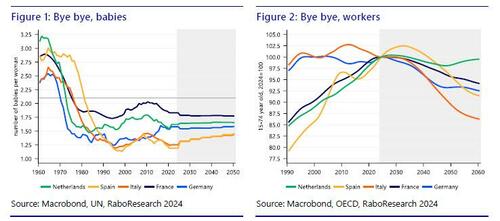
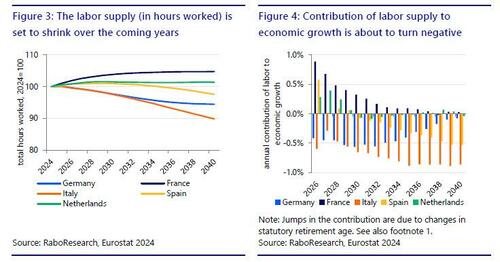
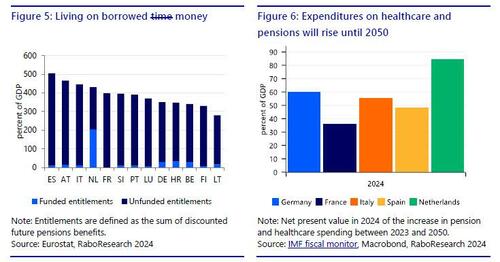
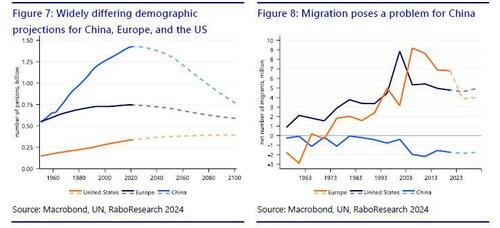

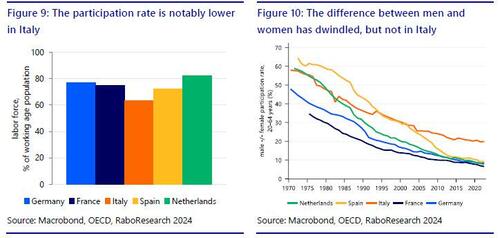
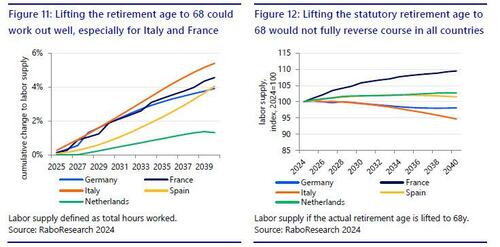
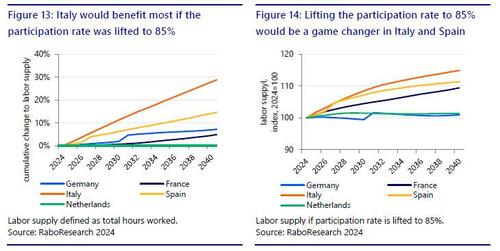
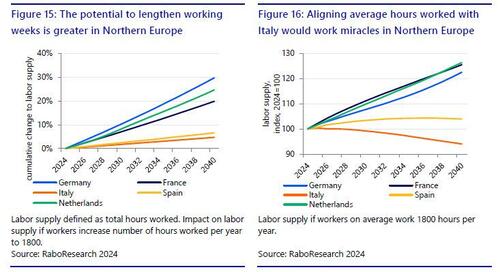
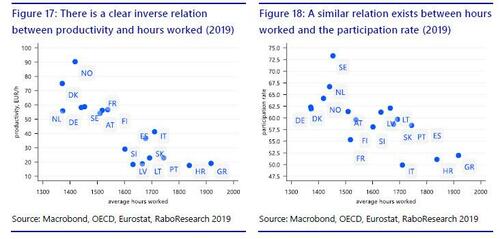
































































.jpg)



